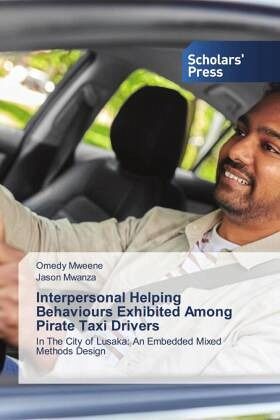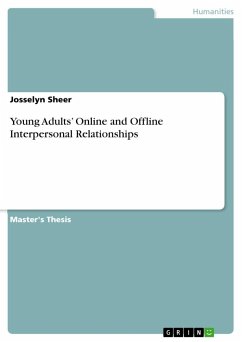
Interpersonal Helping Behaviours Exhibited Among Pirate Taxi Drivers
In The City of Lusaka: An Embedded Mixed Methods Design
Versandkostenfrei!
Versandfertig in 6-10 Tagen
65,99 €
inkl. MwSt.

PAYBACK Punkte
33 °P sammeln!
This study aimed at constructing interpersonal helping behaviour that is exhibited among pirate taxi drivers. A mixed-methods study with embedded design guided this study. One hundred and sixty-nine pirate taxi drivers who were enlisted using cluster random sampling responded to a survey questionnaire. A further 41 participated in the interviews and focus group discussions. Data were analysed using SPSS version 20 and qualitaive data was analysed in word. The findings show that pirate taxi drivers were less proactive to help. However, they had the propensity to be reactive when helping either ...
This study aimed at constructing interpersonal helping behaviour that is exhibited among pirate taxi drivers. A mixed-methods study with embedded design guided this study. One hundred and sixty-nine pirate taxi drivers who were enlisted using cluster random sampling responded to a survey questionnaire. A further 41 participated in the interviews and focus group discussions. Data were analysed using SPSS version 20 and qualitaive data was analysed in word. The findings show that pirate taxi drivers were less proactive to help. However, they had the propensity to be reactive when helping either unsolicited or solicited as these two forms had the highest frequency of instances. More than three-quarters of the pirate taxi drivers n = 133 (78.7%) exhibited low egoistic helping behaviour compared to a quarter n = 33 (19.5%) who exhibited moderate egoistic helping behaviour. A paltry n = 3 (1.8%) exhibited high egoistic helping behaviour. The sample score was 9.6 (± 2.4 SD) and this waswithin the low category of egoistic helping behaviour.












